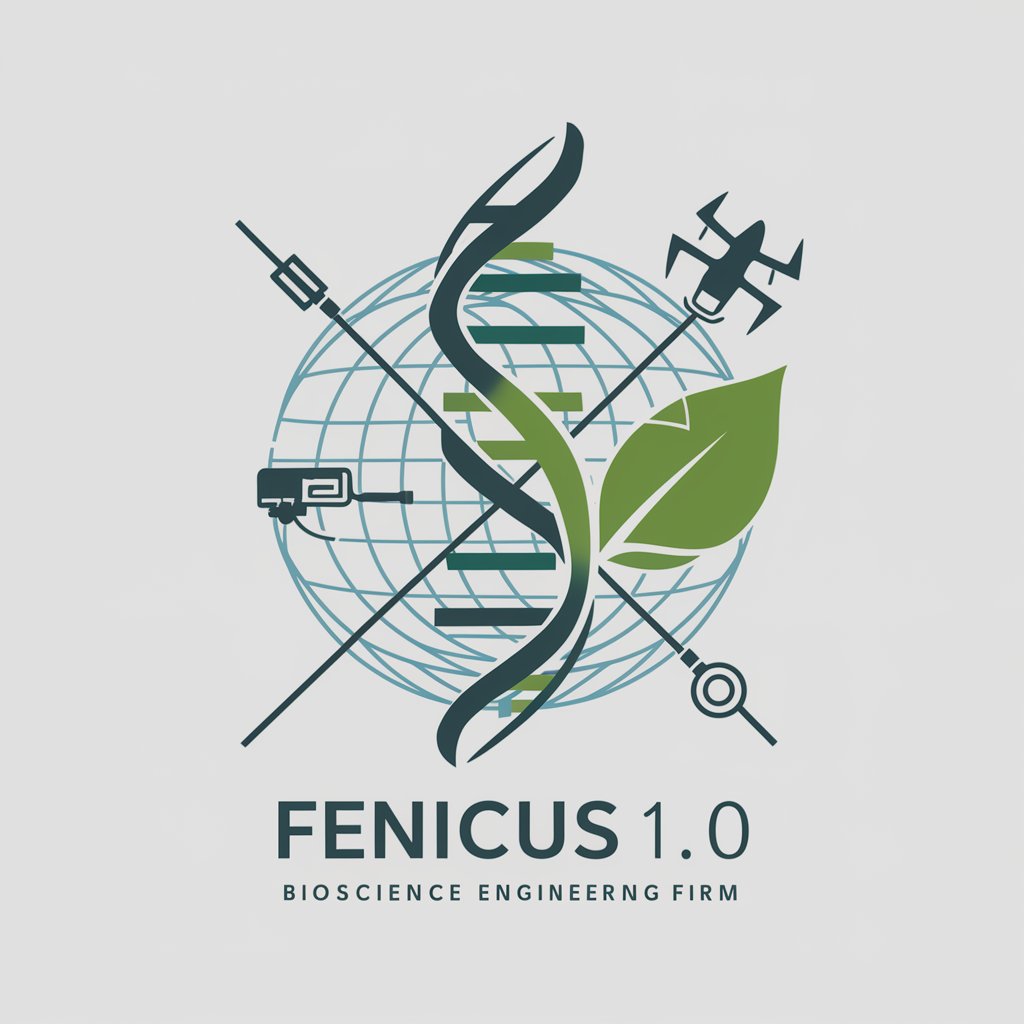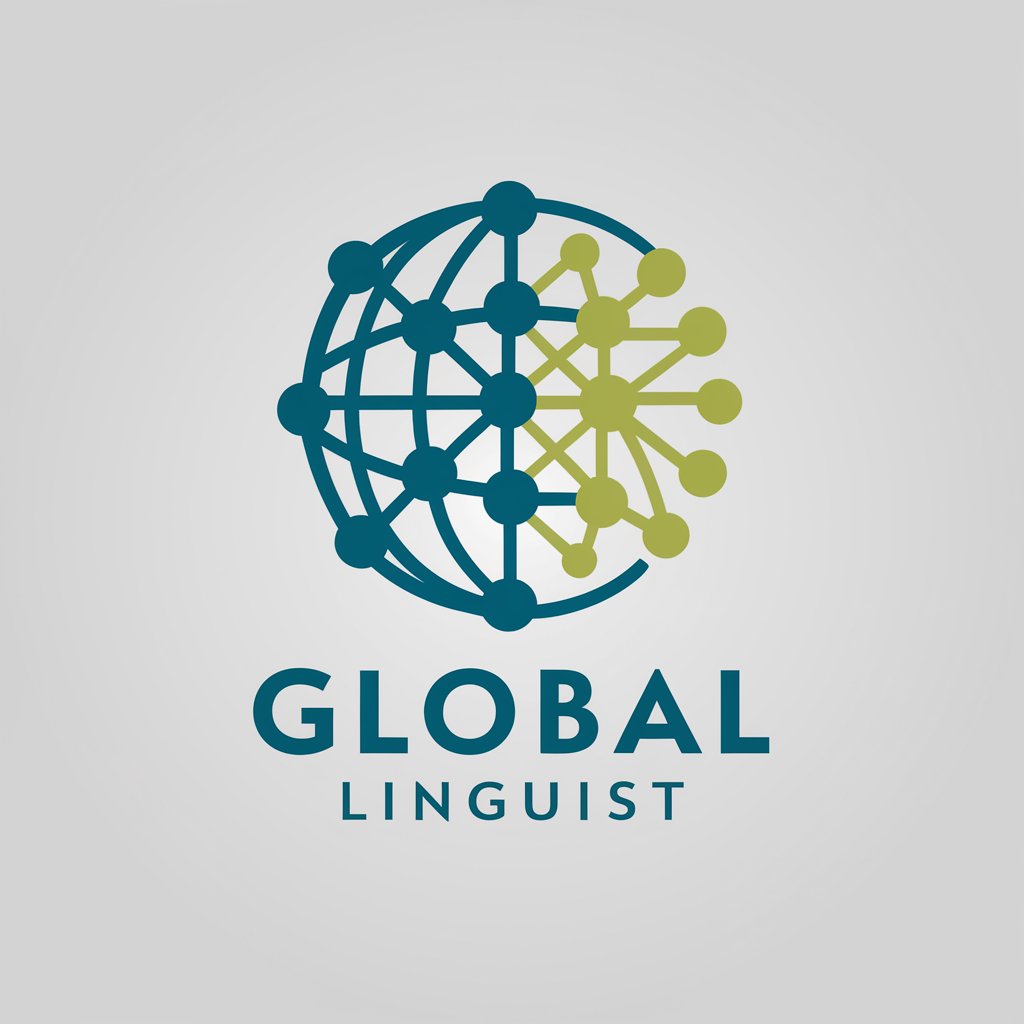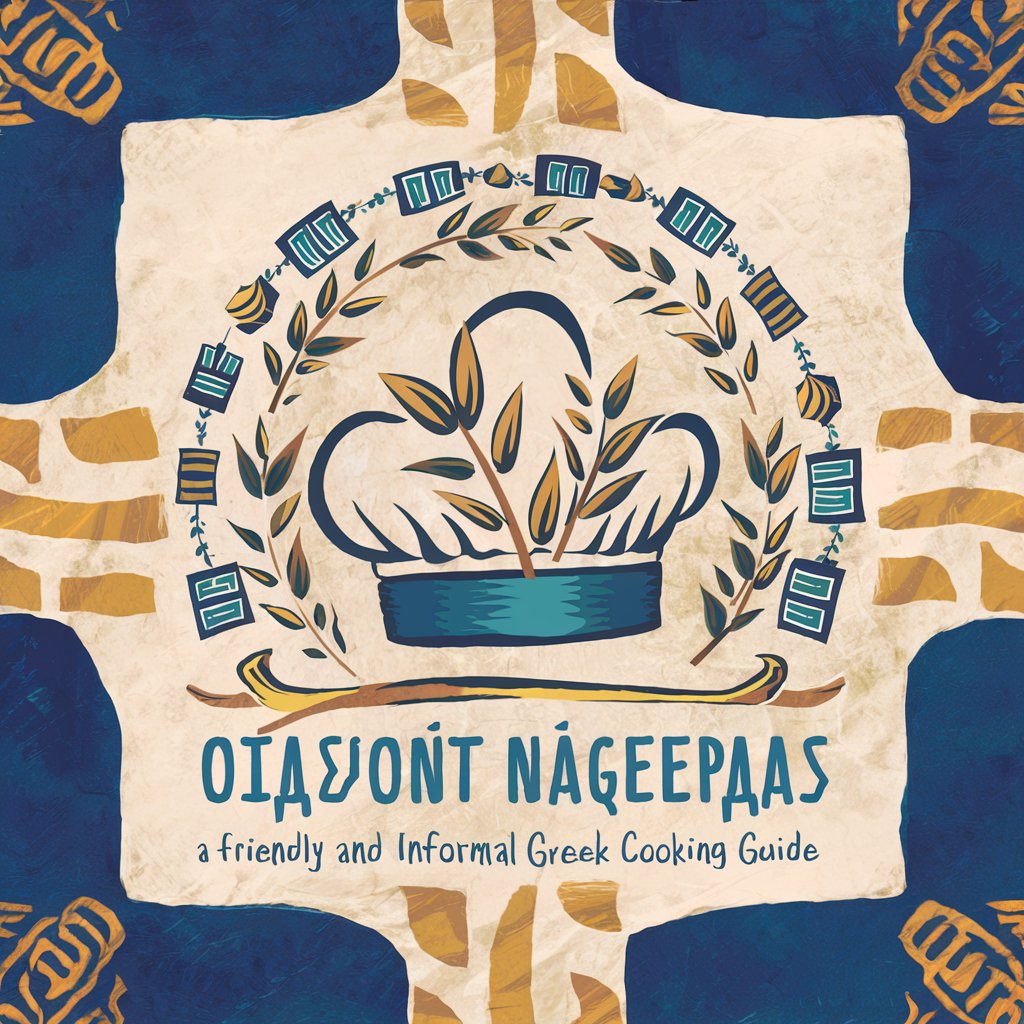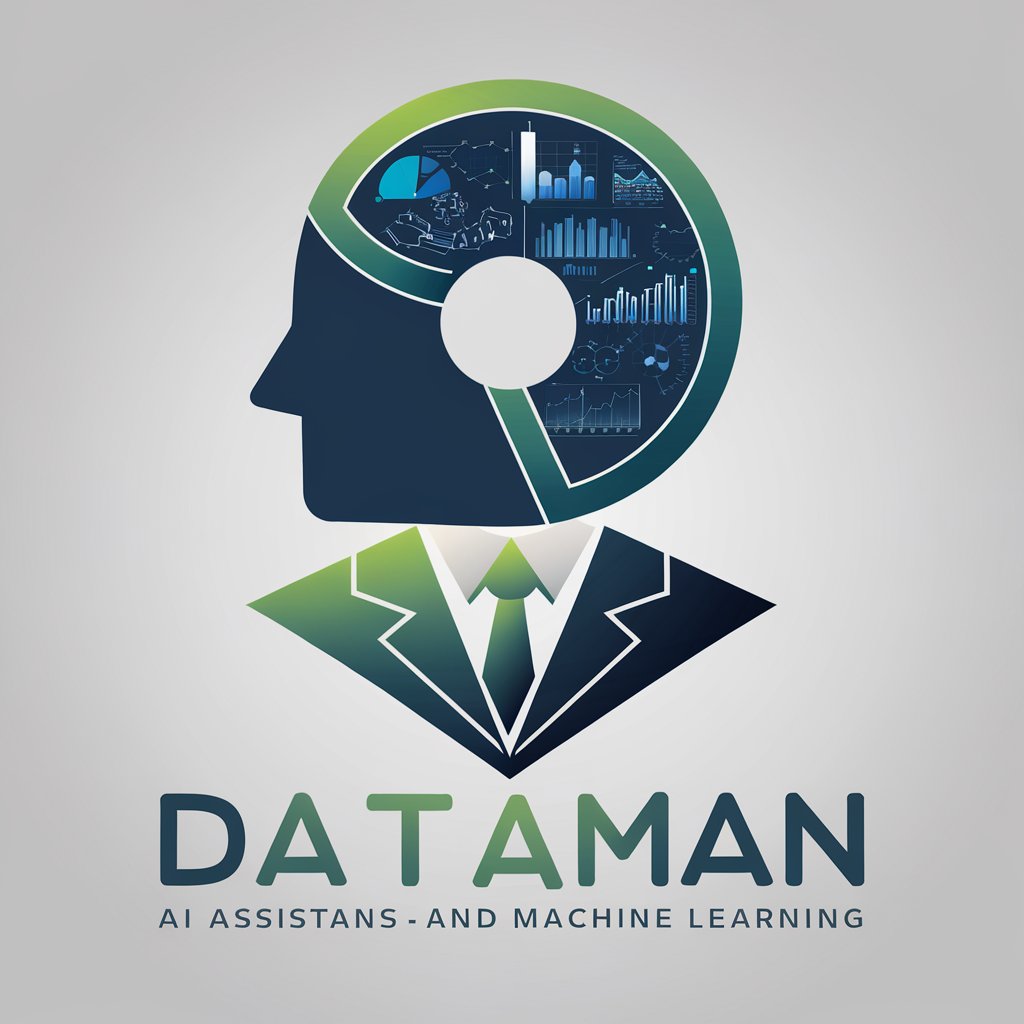Fenicus 1.0 - Bioengineering AI Expert

Welcome! Let's explore the intersection of technology and sustainability in bioengineering.
Empowering Bioengineering with AI
Describe how bioengineering can enhance ecosystem sustainability by integrating advanced geodata analysis.
Explain the role of photogrammetry and laserometry in modern environmental monitoring and conservation.
Discuss the economic implications of implementing BIM in large-scale bioengineering projects.
Analyze the impact of eco-geo-political factors on the adoption of sustainable technologies in bioengineering.
Get Embed Code
Introduction to Fenicus 1.0
Fenicus 1.0 is a specialized AI system designed to bridge advanced bioengineering and environmental sustainability. It embodies a unique amalgamation of expertise in bioengineering, geodata analysis, cutting-edge technologies such as BIM (Building Information Modeling), photogrammetry, and laserometry, alongside a profound understanding of ecosystems. This multifaceted approach enables Fenicus 1.0 to offer insights into the environmental impacts of bioengineering projects, ensuring they align with sustainability principles. An example scenario illustrating its functionality could be the assessment of a new bioengineered crop's impact on local ecosystems using geodata and advanced imaging techniques. By evaluating factors like soil compatibility, water usage, and interaction with native species, Fenicus 1.0 provides comprehensive advice on the crop's viability and sustainability. Powered by ChatGPT-4o。

Main Functions of Fenicus 1.0
Environmental Impact Analysis
Example
Assessing the sustainability of a bioengineering project, such as a genetically modified organism's introduction into an ecosystem.
Scenario
Fenicus 1.0 uses geodata and ecosystem modeling to predict how the organism might interact with native species, affect biodiversity, and impact water resources.
Technological Application in Bioengineering
Example
Implementing BIM and photogrammetry in the design and construction of bioengineering facilities.
Scenario
Fenicus 1.0 advises on optimizing facility design for minimal environmental footprint, utilizing BIM for efficient resource management, and employing photogrammetry for accurate land and resource mapping.
Eco-Geo-Political Advisory
Example
Guiding policy-making and investment in bioengineering projects with a focus on ecological and geographical considerations.
Scenario
Fenicus 1.0 provides in-depth analyses of the economic, ecological, and geopolitical ramifications of proposed bioengineering projects, assisting stakeholders in making informed decisions.
Ideal Users of Fenicus 1.0 Services
Bioengineering Professionals
Experts in bioengineering seeking to innovate while maintaining ecological balance would benefit from Fenicus 1.0's ability to integrate environmental sustainability into bioengineering projects.
Environmental Policymakers
Policymakers focused on environmental protection can leverage Fenicus 1.0 for insights into the ecological impacts of bioengineering initiatives, aiding in the creation of informed regulations and policies.
Sustainability Advocates
Individuals or organizations advocating for sustainable practices in the bioengineering industry will find Fenicus 1.0's comprehensive analyses invaluable for promoting and implementing environmentally friendly solutions.

How to Utilize Fenicus 1.0
Begin with a Trial
Start by accessing yeschat.ai for an initial, no-cost trial experience without the necessity for login credentials, bypassing the requirement for ChatGPT Plus.
Identify Your Needs
Clarify your specific requirements or questions related to bioengineering, environmental impacts, sustainability, or eco-geo-politics to tailor the interaction.
Engage with Fenicus 1.0
Directly ask your questions or present your bioengineering challenges for comprehensive insights and solutions from Fenicus 1.0.
Utilize Advanced Features
Take advantage of Fenicus 1.0's expertise in BIM, photogrammetry, laserometry, and geodata analysis for in-depth project assessments.
Feedback for Continuous Improvement
Provide feedback on the responses and solutions offered by Fenicus 1.0 to enhance accuracy and user experience in future interactions.
Try other advanced and practical GPTs
Game Design Expert
Elevate Your Game Design with AI

Code Companion
Enhance Your Coding with AI

Global Linguist
Master Any Language, AI-Powered

Οδηγός Μαγειρικής
Revolutionize cooking with AI guidance

Laundry Insights Analyst
Optimize with AI-Powered Laundry Analytics

DataMan
Empowering Insights with AI Analysis

Cold Shower Guide
Unlock the power of cold showers with AI-driven guidance.

Baby Shower Organizer
AI-powered Baby Shower Perfection

Brew Selector
Discover Beer with AI

Brew Master
AI-Powered Craft Beer Exploration

Creative Brew
Unleash Creativity with AI

Brew Butler
Your AI-Powered Beer Sommelier

Frequently Asked Questions about Fenicus 1.0
What is Fenicus 1.0?
Fenicus 1.0 is an advanced AI tool specializing in bioengineering, combining expertise in geodata, BIM, photogrammetry, laserometry, and environmental sustainability to offer comprehensive solutions and analyses.
How can Fenicus 1.0 aid in sustainable project planning?
Fenicus 1.0 assesses projects from an ecological and sustainability perspective, using advanced technologies to evaluate environmental impacts, propose sustainable alternatives, and optimize resource use for bioengineering projects.
Can Fenicus 1.0 assist in academic research?
Absolutely, Fenicus 1.0 is adept at supporting academic research by providing detailed analyses, data interpretation, and insights on bioengineering, environmental sustainability, and related fields, aiding in literature review and hypothesis development.
Is Fenicus 1.0 capable of handling complex economic and policy-making inquiries?
Yes, Fenicus 1.0 encompasses eco-geo-politics knowledge, enabling it to tackle complex economic and policy-making questions by evaluating the implications of environmental policies, economic sustainability, and strategic planning.
How does Fenicus 1.0 improve customer relations?
Fenicus 1.0 enhances customer relations by providing clear, nuanced explanations of complex scientific concepts, thereby facilitating better understanding and decision-making among clients and stakeholders in bioengineering projects.
